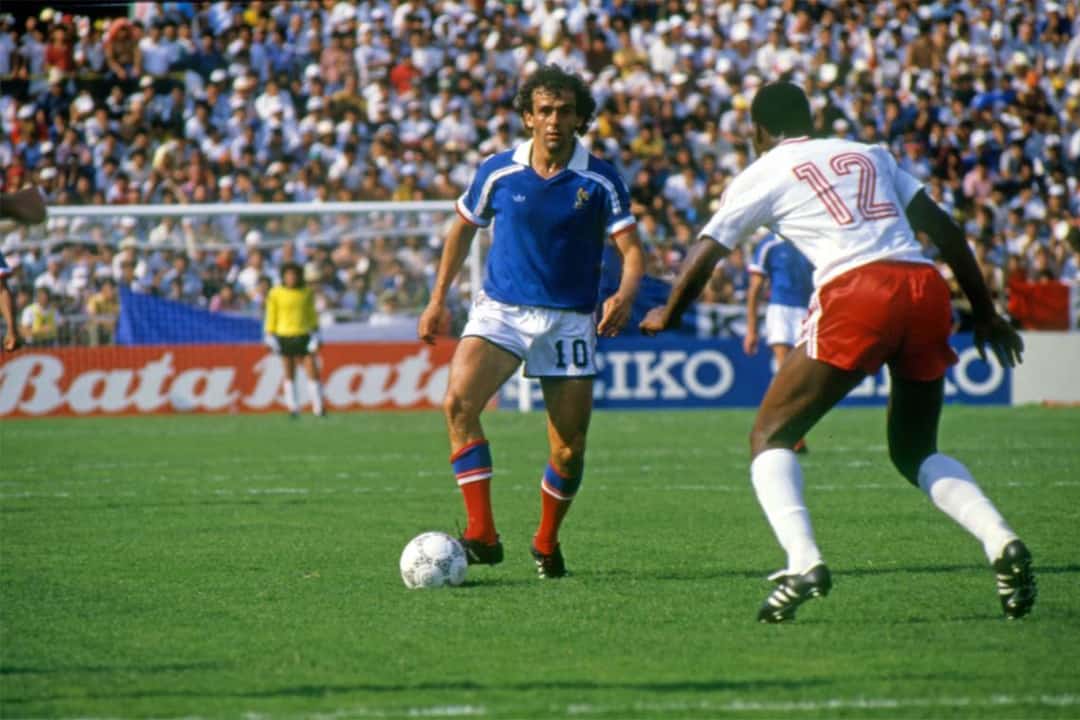On November 23, the Canadian men’s national soccer team (CMNT) will play in its first World Cup game in 36 years. That’s right, this isn’t our first rodeo! It sure does feel like it, though, especially considering just how much has changed since then.
Things were a lot different for Canadian soccer in 1986. None of the names on the roster are ones that you would recognize. The World Cup that year was held in Mexico, and Canada was drawn into a difficult group, one that few thought Canada could survive, since it included the likes of Hungary, the Soviet Union, and France.
Canada’s first game was against the French, a team loaded with stars like Michel Platini and Jean-Pierre Papin. France had just come off a UEFA Euro championship in 1984 and were the favourites to win the World Cup. Despite this, Canada held their ground, playing a sharp defensive game and holding France scoreless until Papin scored in the 79th minute to break the deadlock and win the game. France would go on to finish third in the tournament.
Hoping to build off the positive aspects of that first performance, Canada’s second game was against Hungary, who was a much better team than you might expect. While they were the first team out of Europe to qualify for the World Cup, in their first match, they were hammered 6–0 by the Soviet Union. Despite this, Canada failed to capitalize on the momentum they had created for themselves in their game against France, falling 2–0 to Hungary.
With one group game remaining, not all was lost for Canada. If they could defeat the Soviet Union and the stars aligned with other World Cup groups, a path to the knockout stages of the tournament was possible. But the Soviet Union was no pushover, featuring the likes of Igor Belanov — who had just won the Ballon d’Or, football’s most coveted individual trophy. The game remained scoreless for about 60 minutes, until the Soviet Union brought in heavy hitters Belanov and Oleksandr Zavarov to help push their team over the edge. The Soviet Union scored two goals in quick succession, and Canada was officially eliminated from the World Cup.
On paper, Canada’s performance doesn’t seem impressive in the slightest — three matches and three losses, with zero goals scored. But the fact that Canada was even in the World Cup to begin with was a massive achievement for Canadian soccer, even though it’s since been lost to history. Out of the players on the current National Team roster, only one player is older than Canada’s last World Cup appearance — Atiba Hutchison, who is 39 years old and serves as team captain.
Still, the tournament was responsible for inspiring a new generation of Canadian soccer players who represented their country on the global stage in the 1990s and 2000s, a difficult period for Canadian soccer. While the women’s team has grown into a force that might contend for the women’s World Cup next year, the men’s team has experienced many painful years of struggle and failure on big stages.
Only in recent years has a new generation of Canadian soccer players emerged, ready to take the mantle from that 1986 World Cup team and raise the standard for the men’s national team performance in international soccer.
And the team representing Canada this month at the World Cup has a lot more in common with the team that represented Canada in 1986 than you might realize. The CMNT just released their official roster for the World Cup, and for every Johnathan David or Alphonso Davies, there are also a ton of names on the roster that you might not recognize.
Finally, your Forwards! 🇨🇦#CANMNT x @CIBC #WeCAN pic.twitter.com/Unzi52sXmj
— Canada Soccer (@CanadaSoccerEN) November 13, 2022
Much like in 1986, this year Canada has had its fair share of doubters on its route to the World Cup. Many did not expect them to even earn a spot at the tournament. The team has similarly been drawn into a difficult group that includes the likes of Morocco, as well as international powerhouses Croatia and Belgium.
Overall, there are mixed opinions on how Canada will perform. Some think that it would be arduous for them to make it out of the group stage, while others are rather optimistic about their chances to get into the knockout stage. Will Canada outlast their 1900’s counterparts? Or will they face the same troubles? Only time will tell.


